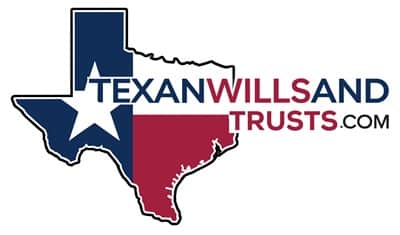Wills and Trusts
Avoid Mistakes with Beneficiary Forms
Many Texans mistakenly believe that filling out beneficiary forms is enough to handle what happens to their property after they pass away. While these forms are important, they are not a replacement for a comprehensive estate plan. Relying only on beneficiary designations can create major problems for your loved ones—problems that could have been avoided with the right estate planning tools.
In this article, we’ll explain why beneficiary forms fall short, how they can create conflicts, and what a full estate plan through TexanWillsandTrusts.com can do to protect your legacy.
What Are Beneficiary Forms?
Beneficiary forms—also called payable on death (POD), transfer on death (TOD), or beneficiary designations—are used by banks, retirement plans, and insurance companies to allow you to name who should receive specific accounts after your death. Common examples include:
- Life insurance policies
- IRAs and 401(k)s
- Bank accounts
- Investment accounts
- Real estate deeds with TOD designations
These forms work by bypassing probate and directly transferring ownership to the named person after your death. But just because these forms transfer property doesn’t mean they account for everything that can go wrong.
Why Beneficiary Forms Alone Fall Short
1. They Only Cover Individual Assets
Beneficiary forms only apply to the specific account or asset named. They do not control what happens to your other property—like your home, personal belongings, vehicles, or family heirlooms. A will or trust is required to handle those assets.
2. They Don’t Provide Backup Plans
What if the person you name dies before you? Or what if your beneficiary is a child, underage, or disabled? Most forms don’t let you name contingent beneficiaries, and even when they do, they don’t allow detailed instructions. That means a court could step in—especially if the listed beneficiary is a minor or becomes incapacitated.
3. They Can Conflict with Your Will or Trust
Many people don’t realize that beneficiary forms override your will. If you change your mind in your will but don’t update the form with the bank or insurance company, your money will go to whoever is listed on the outdated form—even if that’s an ex-spouse or estranged family member.
4. They Create Legal and Family Conflicts
Texas courts generally honor beneficiary designations, even when the result is unfair or contradicts other parts of your estate plan. This can lead to:
- Sibling disputes
- Disinheritance of new children or spouses
- Unintended tax consequences
- Financial losses for those who actually need the support
5. They Don’t Address Incapacity
Beneficiary forms only take effect when you die. They do nothing to help if you become incapacitated. Without documents like a durable financial power of attorney or medical power of attorney, your family may be forced to go through the court system for guardianship.
What a Complete Estate Plan Does (That Beneficiary Forms Can’t)
A comprehensive estate plan from TexanWillsandTrusts.com ensures that all of your assets—and all of your “what if” situations—are covered. Here’s what our Texas Family Trust Plan provides:
✅ A Revocable Living Trust to avoid probate and consolidate your assets
✅ A Pour-Over Will for any property not transferred to the trust
✅ Financial and Medical Power of Attorney documents for incapacity planning
✅ A Declaration of Guardian for minor children or yourself
✅ Detailed guidance videos to walk you through every step
Should You Still Use Beneficiary Forms?
Yes—but only as part of a larger plan. Beneficiary forms can work well when properly coordinated with your trust or will. For example:
- You can name your trust as the beneficiary of your accounts
Real-World Example: How Beneficiary Forms Can Backfire
A father listed his wife as the beneficiary on all his accounts. After she passed away, he never updated the forms. When he died, the default rules on the forms gave everything to his estranged mother—not his kids or his new partner. His will said otherwise, but the beneficiary forms won. A trust would have avoided this.
Final Thoughts: Protect Your Legacy the Right Way
Beneficiary forms are helpful tools, but they’re no substitute for a real estate plan. Without a trust and powers of attorney, you leave your family vulnerable to court battles, delays, and unexpected outcomes.
At TexanWillsandTrusts.com, we make it easy and affordable to put a complete plan in place. Our Texas Family Trust Plan is built specifically for Texans—so you can be confident that your documents work under Texas law.
Start Your Estate Plan Today
Don’t risk your legacy on a few forms from a bank. Take control of your estate and protect the people you love.
